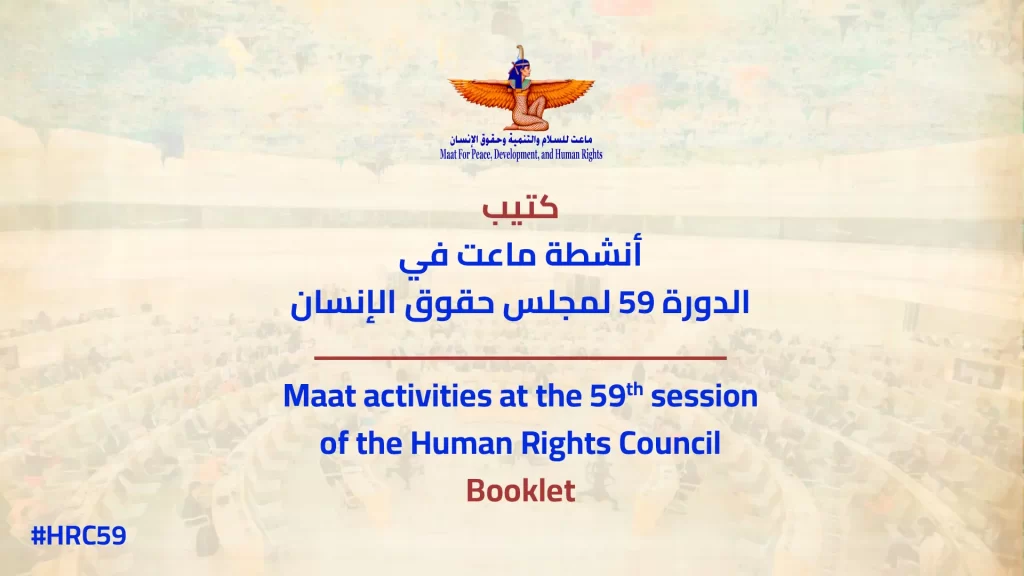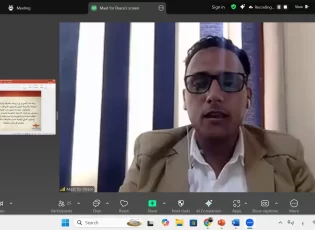Hanan Abdel Latif: Wars and conflicts have contributed to the escalation of human trafficking online
Tarik Lamloum: The Internet and modern technology have become the primary tools used for recruiting victims of human trafficking
Maha Al-Juwayni: Artificial intelligence plays a vital role in combating human trafficking
Wessam Farid: Civil society organizations are the most capable of confronting human trafficking via the Internet
Muhamed Mukhtar: Cooperation among all stakeholders is necessary to eradicate the phenomenon
Maat for Peace, Development and Human Rights flagged the increasingly negative role played by technology in human trafficking and stressed the need to pay more attention to the myriad opportunities that modern technologies offer to combat the phenomenon.
This issue was handled by Maat for Peace, Development and Human Rights in a webinar organized on the sidelines of the World Day Against Trafficking in Persons entitled “Using Technology in Human Trafficking”. The webinar was attended by a number of human rights experts, topped by Dr. Hanan Abdel Latif, the regional director of Al-Rafidain International Center for Justice and Human Rights; Tarik Lamloum, a human rights researcher and president of Belaady Organization for Human Rights; and Dr. Maha Jouini, director of the Regional Center for Artificial Intelligence and Digital Technology, and a Wessam Farid; a human rights researcher at Maat. The session was moderated by Muhammad Mukhtar, a researcher at Maat specialized in technology and human rights.
Dr. Hanan Abdel Latif explained that wars, armed conflicts and the spread of terrorist groups have contributed to the increase in the use of the Internet and digital technology in human trafficking, and affirmed that social media play a key role in increasing the number of victims, especially women and young children.
Tarik Lamloum, for his part, clarified that the Internet and digital platforms have become the primary tools used for the recruitment, exploitation and control of victims by human trafficking groups, referring to the recent surge in the number of people recruited persons through social media, and the role of these applications to facilitate communication between perpetrators and victims. Lamloum, therefore, flagged the huge role played by the Internet in increasing human trafficking cases to a large extent.
In a related context, Dr. Maha Jouini confirmed that modern technology, especially AI-based applications, can play a remarkable role in combating human trafficking crimes by collecting data on the phenomenon and tracking criminals based on this data; however, there are various obstacles facing the achievement thereof such as the linguistic and cultural barrier that needs the development of certain algorithms to accommodate all these cultures.
While Wissam Farid pointed to the role of technology companies and civil society organizations in combating the phenomenon, pointing to the efforts of various companies to contain human trafficking by making technological tools capable of tracking down smugglers and terrorist currents that carry out these operations, in addition to comprehensive awareness, especially on social media. .
In conclusion, Mukhtar closed the session by stressing that effective cooperation among all stakeholders is what essentially guarantees progress in combating human trafficking using digital means and the Internet, noting the need for civil society organizations and technology companies to join hands and unite their efforts to this end.
shortlink: https://maatpeace.org/en/?p=36005















